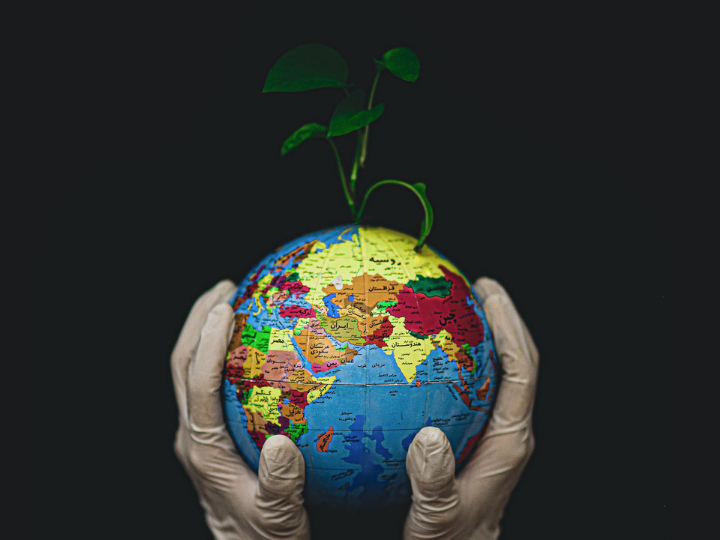by N. Peter Kramer
The UN climate conference in Glasgow has not produced enough. The planet is far from being saved. After more than two weeks of meetings, the combined climate plans of the 197 countries are not enough to limit global warming to 1.5 degrees, even the 2-degree limit will probably not be achieved with the current commitments.
The UN had asked all countries to come to Glasgow six years after Paris with tightened climate plans so that the planet remains on course to keep global warming within acceptable limits. To achieve this, global emissions must be roughly halved by 2030 to reach net zero by 2050. That didn’t work. In fact, hardly any new climate ambitions have been proposed in Glasgow. But, it was predicted that Glasgow would not close the gap between Paris ambition and actual emissions.
The big surprise was the deal signed by Chinese chief negotiator Xie Zhenhua with US climate envoy John Kerry. The two countries are geopolitically on a collision course, but the fight against climate change is so important to them that they want to fight together against the emission of methane, the strongest greenhouse gas. Methane appears to be Glasgow’s biggest loser. The US also unveiled a plan to cut its methane emissions by nearly 75% by 2035. This comes on top of a joint EU-US methane initiative, less ambitious than the American one but it is a plan on a global scale. There are already more than a hundred participating countries.
A small breakthrough came about the creation of a global carbon market, another hot topic. Article 6 of the Paris Agreement talks about the creation of such a market, through which emission allowances are traded. Rich countries can pay poor countries to go the extra mile. But such a global carbon market needs transparency and clear rules of the game. Many old emission rights are still circulating, the effect is that the carbon price remains too low. It has now been decided that 2 percent of the rights will be removed from the system. A step forward, but probably not enough for a real performing market.
And the money? In 2009, rich countries pledged to put $100 billion into a fund each year. That money is still not there. In the past two weeks, some countries opened their wallets but $100 billion is by far not reached. Poor countries have also long been pushing for a financial settlement for climate damage they have already suffered, a very sensitive subject to the EU and the US. They fear that this could open doors to liability claims. After all, they are responsible for all that CO2. The concluding text now states that financial support to vulnerable countries must urgently be increased. The rich countries need to get 100 billion as soon as possible. Where did we hear that all before? Anyhow, the dissatisfaction among the poor countries remains very high.
But the most disappointing moment in Glasgow was, when, at the last minute of the conference, China and India put the brakes in phasing out coal. When the British host Alok Sharma was about to hammer down the conference, the two countries suddenly had reservations about the term ‘phasing out’. They found it too definitive. After consultations, one word was changed in the closing text: ‘phase out’ became ‘phase down’. The question remains whether the change of one word makes that much difference. Would China and India really start closing all their dirty coal plants at an accelerated pace, had phase out remained in the closing text? The hard truth is that China and India will need a lot of coal for years to come to grow their economies.
And let us not forget, an Indian and a Chinese still emits much less CO2 per head than a European and certainly than an American!






